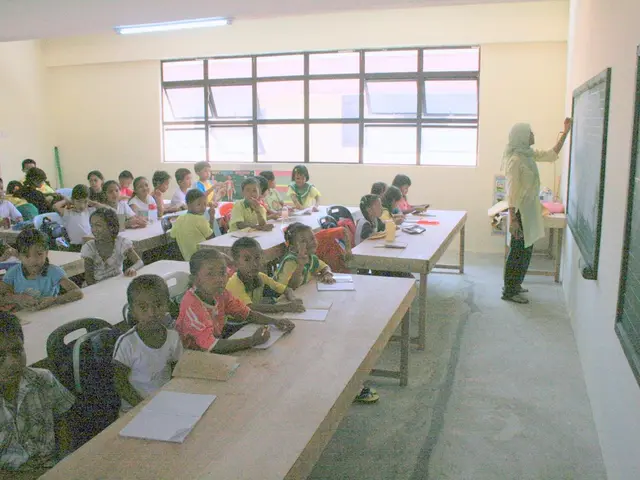Catering to Personal Requirements within Round-the-Clock Child Care Services
In an effort to promote a more inclusive and engaging learning environment, child care settings are increasingly adopting Individualized Learning Plans (ILPs). These tailored educational strategies cater to the unique needs of each child, fostering cognitive development and socio-emotional well-being.
## Implementing ILPs in Child Care Settings
The implementation of ILPs begins with an assessment of each child's strengths, weaknesses, and interests. This information is used to set Specific, Measurable, Achievable, Relevant, and Time-bound (SMART) goals for cognitive and socio-emotional development. Activities and play-based learning experiences are then designed to align with these goals, with parents and caregivers involved in the planning process to ensure consistency across settings.
Once implemented, progress is tracked using learning profiles, and feedback is regularly gathered from children, parents, and staff to refine the plans. A holistic approach is taken, with a focus on socio-emotional development and cognitive development through positive reinforcement, inclusive environments, diverse learning strategies, and materials.
## Benefits of ILPs
The benefits of ILPs are twofold. Cognitively, they help tailor learning experiences to individual developmental stages, enhancing problem-solving skills and academic readiness. Socio-emotionally, they promote resilience, confidence, and strong relationships by fostering a supportive environment where children feel valued.
## Additional Considerations
To ensure effective implementation, staff must receive ongoing professional development, and families should be engaged in the development and monitoring of ILPs. Early intervention strategies, such as regular developmental screenings, tailored learning activities, and evidence-based interventions like play-based learning and speech and language therapy, play a crucial role in this process.
In conclusion, by integrating ILPs into child care settings, educators can create a personalized learning environment that supports the unique needs of each child, leading to enhanced cognitive and socio-emotional development. Our child care setting takes pride in providing ongoing training for our staff, collaborating closely with families, and creating inclusive environments to foster each child's potential.
Incorporating education-and-self-development resources such as early childhood education articles and workshops can help the staff stay updated on strategies for promoting social-emotional skills in children. To further enhance a child's lifestyle, incorporating health-and-wellness activities like fitness-and-exercise routines and mindfulness practices into the ILPs can foster a well-rounded growth. Encouraging a sense of curiosity and exploration in science subjects can also contribute immensely to a child's cognitive development through the ILPs.




